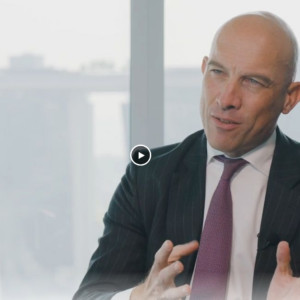Private View Blog: Is private equity the ideal way to tap into African growth?

Private equity seems well suited to opening up the African continent to foreign investors, but deal flows remain small
In May 2000 The Economist’s cover featured the outline of Africa filled with an image of a guerrilla soldier brandishing an RPG under the headline ‘The Hopeless Continent’.
But times, and perceptions, have changed. In December 2011, the same publication ran another cover story on the continent, but this time proclaiming ‘Africa rising’.
Since the start of the new millennium, Africa’s GDP has been rising by around 5 per cent a year and real income per capita more than 2 per cent. The population is expected to rise from around 1bn today to 2.5bn by 2060 with a young and increasingly urbanised workforce. The growth of China and India has seen a rise in demand for commodities, which Africa has in abundance.
The economic fundamentals seem compelling, but how are investors best able to capture the opportunities?
Although a number of African countries have now established stock exchanges, liquidity remains an issue. According to the World Federation of Exchanges, in July 2019 the Johannesburg Stock Exchange had a monthly turnover of $370bn, but that of the next largest bourse on the continent, in Nigeria, was just $44bn, with $14bn for the Egyptian Stock Exchange, the third largest.
Moreover, the listed markets are not really representative of the underlying economies, argues Paul Boynton, CEO of Old Mutual Alternative Investments.
“Probably only two listed markets, Egypt and South Africa, are really representative of the economy as a whole,” he says. “In fact, what you do see is businesses often come to market through a European exchange.”
In addition, many local businesses in Africa prefer to remain private. So are investors better off taking that route into Africa?
Not many have taken the path, says Mr Boynton. Investors with exposure to listed global emerging market funds, for example, may have some African exposure, but in the private space, most people have nothing. “Those who have chosen to have an allocation have chosen to be different,” he says.
The potential may be there, but returns in the continent’s private equity space have been “uncompelling” in recent years, when compared to other markets, admits Mr Boynton. Yet he insists that “levels of opportunity remain extraordinary”, while other private markets have been “run very hard” and may be in line for a correction.
The number of deals in Africa has been on the rise, though the value of those deals has not, and remain small by global standards.
Mr Boynton reports that investors who once steered clear of Africa are now interested in discussing the continent, but getting them to part with their money is another matter entirely.
The huge problem with Africa is jurisdictional risk across the 54 different countries, he says. But the situation is improving. Many African governments have worked hard to reform their economies and financial systems, and private equity can give investors an active, on-the-ground stewardship of their exposure.
There is also the impact investing aspect to consider. Africa is a continent with myriad social issues to address, and private equity investors can certainly target their money into areas that will do real good.
The opportunities in Africa are undeniable, and there is no doubt that investors are underexposed to a region that is expected to see huge growth in the coming decades, no matter what happens to the global economy.
Investing in Africa brings risk. But those who are able to be patient, and find the right partners with real local knowledge, should find private equity a rewarding way of tapping into that growth, and may be able to help society at the same time.
Elliot Smither is chief sub editor and senior writer at Professional Wealth Management. Follow him on Twitter @ElliotSmither
Register now for free access to PWM, and sign up for our newsletter



